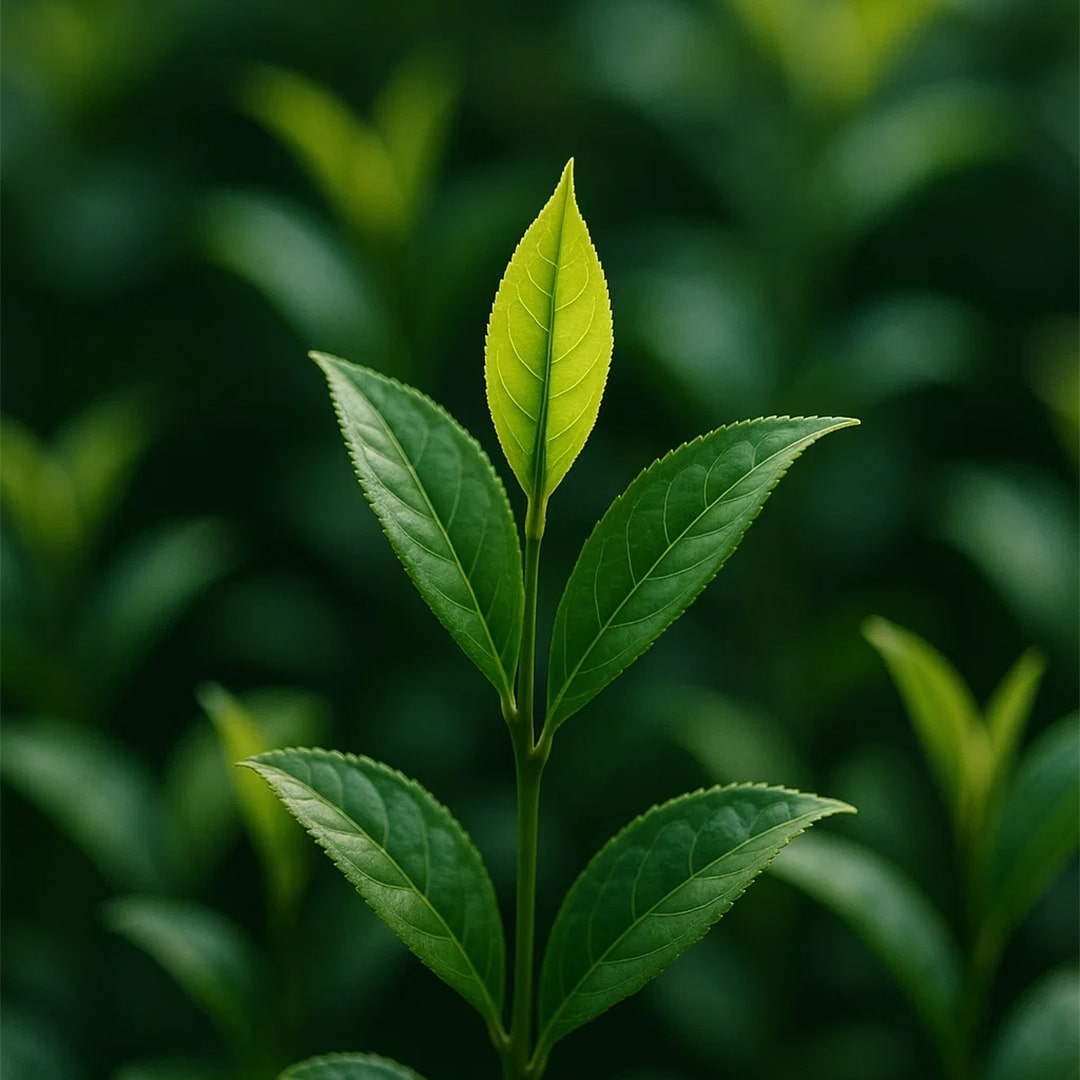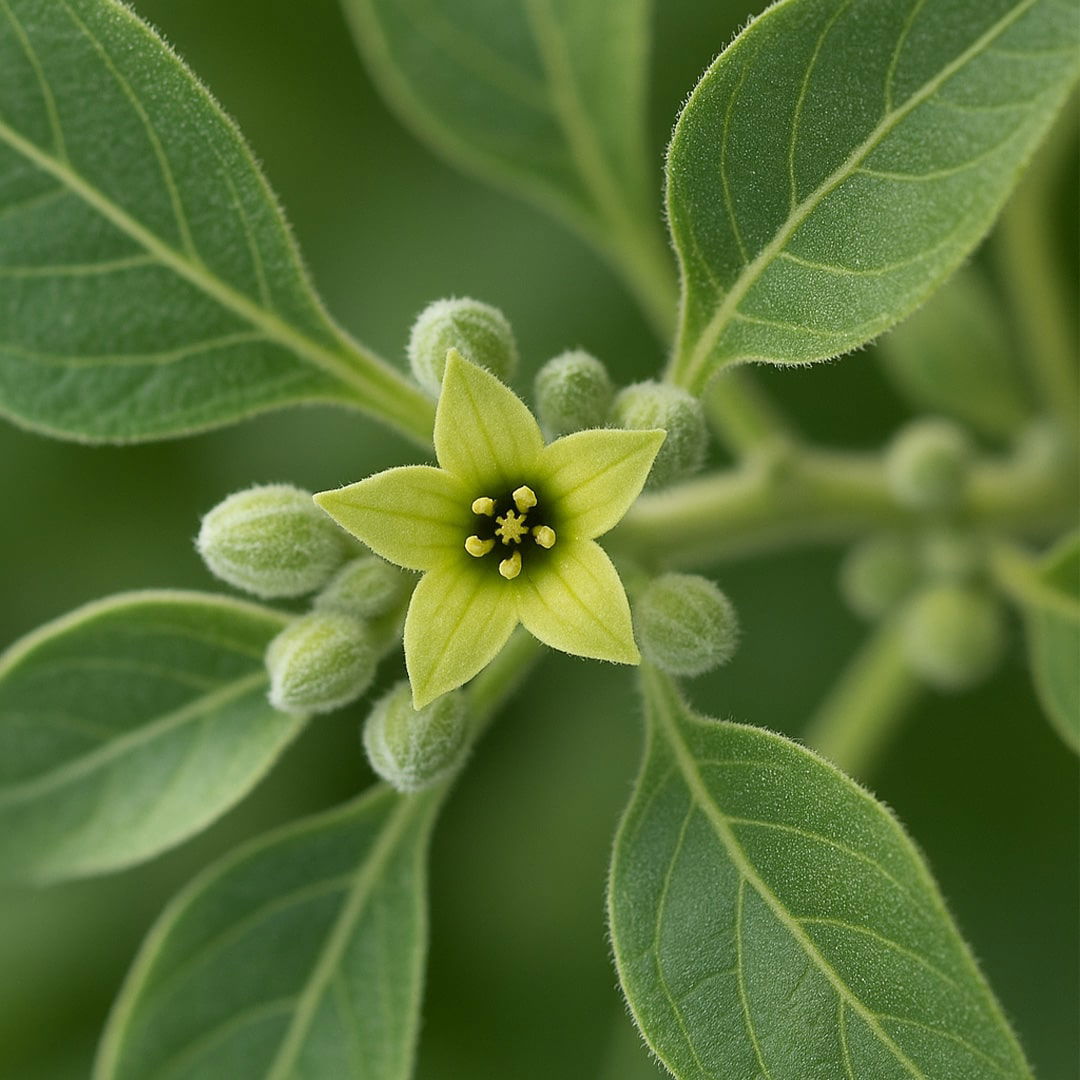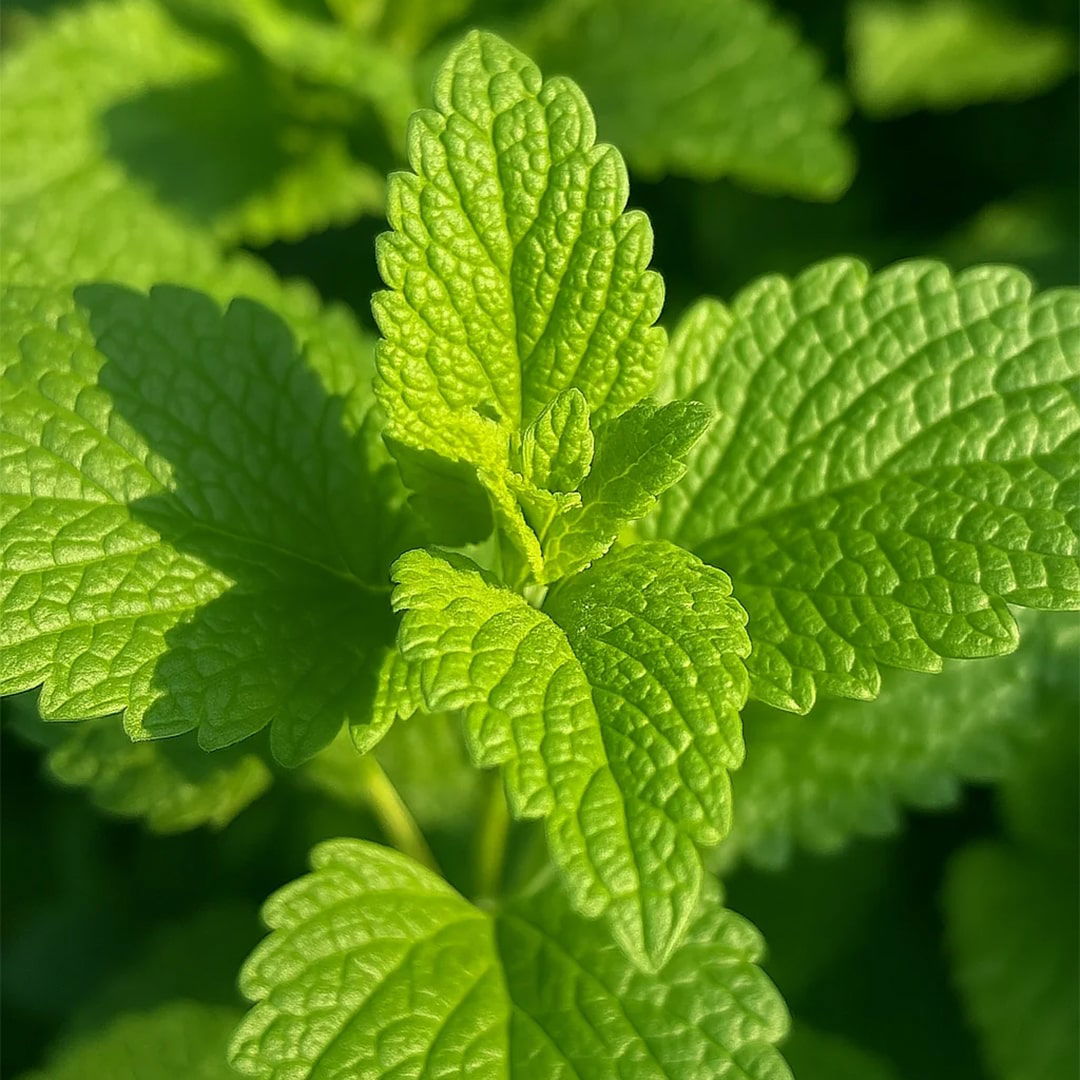
Adaptogenic Plants: Balance Through Nature
These herbs help your body stay stable in the face of stress, fatigue, and the demands of everyday life. They don't impose anything—they simply support your return to balance.
— What is an adaptogenic plant?
A01
Adaptogens are herbs that help your body adapt—to stress, change, and the fluctuations of daily life.
They support your internal systems (such as the nervous, immune, or endocrine systems) to make you less reactive, more resilient, and better able to regain your balance.
+ Without overstimulation
+ Without sedation
+ Just gentle, steady support to help you regulate naturally

— Ashwagandha
What is Ashwagandha?
Ashwagandha (Withania somnifera) , also known as Indian ginseng or winter cherry, is a powerful adaptogenic herb that has been used in Ayurvedic medicine for over 3,000 years. Adaptogens are natural substances that help the body adapt to stress, promoting mental and physical balance and resilience. Ashwagandha is primarily used to support mental clarity, reduce stress, and balance energy levels.
This small shrub, native to India and the Middle East, contains active compounds called withanolides, which are responsible for its many therapeutic effects.

+ Main benefits of Ashwagandha
- Possible side effects & precautions
— Scientific research
Therapeutic properties of Ashwagandha
Comprehensive review of pharmacological effects: anti-inflammatory, antioxidant, anxiolytic
Ashwagandha: Effective against stress, anxiety or sleep disorders?
Overview provided by the National Institutes of Health
Ashwagandha - Uses, Side Effects and More
WebMD's detailed page on ashwagandha, covering uses, side effects, and precautions.
— Melissa
What is this?
Lemon balm is a plant in the mint family known for its calming effects. It has long been used in traditional medicine to reduce stress and anxiety.

+ Main benefits
- Possible side effects and precautions
— Scientific research
Lemon balm - Anti-stress and cognitive support
MDPI pilot study on the positive impact of lemon balm on cognition and anxiety in stressed adults.
Lemon Balm - Nootropic Effects and Dosage
WholisticResearch takes a detailed look at the anxiolytic and nootropic properties of lemon balm.
Lemon Balm & Valerian for Pediatric Anxiety
Multicenter study evaluating the effect of lemon balm and valerian extract in the treatment of agitation in children.
— Ginseng
What is this?
Ginseng is a root that has been used for centuries in traditional medicine, particularly in China and Korea. There are several types of ginseng, but the best known are Korean ginseng (Panax ginseng) and American ginseng (Panax quinquefolius). It is known for its adaptogenic properties, which help the body better cope with stress.

+ Main benefits
- Possible side effects and precautions
Scientific research
Ginseng - The Root of Vitality
Article from Sirio Europe on the effects of Panax ginseng on cognition, immunity and general health.
Ginseng and improved recovery after exercise
Medscape UK covers the evidence linking ginseng supplementation to faster muscle recovery and less muscle soreness.
— Ginseng
What is this?
Ginseng is a root that has been used for centuries in traditional medicine, particularly in China and Korea. There are several types of ginseng, but the best known are Korean ginseng (Panax ginseng) and American ginseng (Panax quinquefolius). It is known for its adaptogenic properties, which help the body better cope with stress.

+ Main benefits
- Possible side effects and precautions
Scientific research
Ginseng - The Root of Vitality
Article from Sirio Europe on the effects of Panax ginseng on cognition, immunity and general health.
Ginseng and improved recovery after exercise
Medscape UK covers the evidence linking ginseng supplementation to faster muscle recovery and less muscle soreness.
— Frequently Asked Questions
Yes. Most adaptogens can be taken daily over the long term, provided the dosages are followed.
As always, seek advice from your healthcare professional if you are pregnant, breastfeeding, or taking any medical treatment.
Some adaptogens (like Rhodiola) work quickly. Others (like Ashwagandha) show best results after 2 to 4 weeks of regular use.
A true adaptogen helps the body normalize its stress response—without overstimulation or sedation. It supports balance, without ever forcing it.
Absolutely. Many of our formulas combine synergistic adaptogens for a more holistic and harmonious effect.


